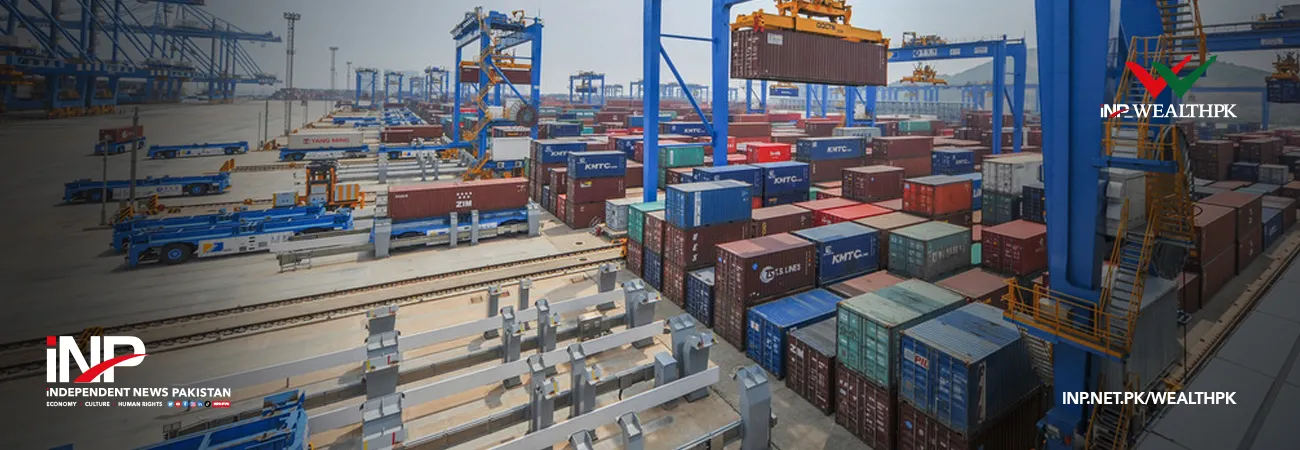INP-WealthPk
Ayesha Mudassar
Falling exports emerge as a significant contributor to persistent trade deficit, posing a multifaceted challenge that has been plaguing the country since the early 2000s. Vice Chancellor of Pakistan Institute of Development Economics (PIDE) Dr Nadeem-ul-Haque said this while talking to WealthPK. PIDE's recent brief titled “What are the Factors Making Pakistan’s Exports Stagnant? Insight from Literature Review” shows that the contribution of the export sector to the GDP has declined from 16% to 10% during the last two decades. Haque blamed numerous factors for the country's persistent trade imbalance. These include high import tariffs, limited availability of long-term financing, inadequate provision of market intelligence services, few export destinations, and structurally low productivity of firms.
“Fewer preferential trade agreements (PTAs) and low commodity concentration are also considered as the major drivers of Pakistan's export challenges,” he added. However, the modern world is using PTAs and diversification as prominent tools to secure market access and deepen regional and global integration. Concerning measures to make exports competitive, he said the initial priority should be to ease up import restrictions. Upgrading the regulatory environment, diversifying products, and helping firms to comply with the international standards are essential for enhancing exports. Focusing on collaboration and innovation will lead to the development of new and diversified products better suited to the demands of international markets. Policies including subsidized credit and training programs must be encouraged to allow local businesses to reach their full potential.
The World Bank report titled “Pakistan Development Update: Reviving Exports” suggests designing and implementing a policy reform agenda in a coordinated manner by the federal and provincial authorities, along with broadest support from the public-private sector for revival of exports. Furthermore, the effective operation of the Export-Import Bank (EXIM Bank) will surely expand and diversify the export base of the country and mitigate the global trade risks through financial support and services to exporters. To overcome the challenges posed by the current economic crisis, Dr. Nadeem said collaboration across sectors – government, exporters, and economists – is needed to identify potential markets and align them with the country’s export capabilities. Prudent decisions along with their effective implementation are required to fix the export challenge.
Credit: INP-WealthPk













